「我为什么挺藏」挺藏会成员周年谈之一 Why I Stand for Tibet?Voices from CYSFT Members– Series 1
在此系列连载第一篇中,我们带来洛桑桑杰的故事。 他的‘挺藏’动力,源自信仰。In the first article of this series, we share the story of Lobsang Sanggye. His support for Tibet is deep rooted in his faith.
自华语青年挺藏会成立以来,很多读者都以为我们是藏人。实际上,我们的成员大部分都是出生在中国本土的华人。正因为如此,我们更无法对历史与现实中藏人所承受的压迫视而不见。我们选择站出来,不是因为我们是藏人,而是因为我们是人,是有良知的华人。今天,我们想用亲身的“挺藏”经历告诉你:支持自由图博,是我们作为华人应尽的责任。我们也希望,有更多人能和我们一起,打破沉默。
Since the founding of Chinese Youth Stand For Tibet, many have assumed we are Tibetan. In fact, most of us were born in China as ethnic Han Chinese. Precisely because of that, we cannot turn a blind eye to the suffering Tibetans have endured. We stand up not because we are Tibetan, but because we are human—with conscience. Supporting a Free Tibet is our responsibility as Chinese. Today, we share our personal journeys to show why we chose to speak out—and to invite more to break the silence with us.
虽然我加入华语青年挺藏会时间不久,在挺藏会成立一周年之际,我也想纪念一下这一时刻。希望挺藏会可以影响更多的华人关注图博,我也希望将自己的力量,汇入挺藏会以及其他各种支持藏人的事业之中。
在我眼中,我们并不是一个政治组织,不是功利性的团体,也不只是出于正义、人权去为藏人奔走呼号,我们更多是出自兴趣、热爱和情感去自发地支持图博、藏人、藏语、藏文化。我们的文章、活动和交流也因此更富有趣味和深度。
I haven’t been with Chinese Youth Stand for Tibet (CYSFT) for long, but on this occasion of our first anniversary, I’d like to mark this moment in my own words. I hope our presence can inspire more Chinese people to pay attention to Tibet, and I want to contribute what I can—joining CYSFT, as well as broader efforts to support Tibetan people.
To me, we’re not a political group, nor are we driven by self-interest. And while justice and human rights are at the heart of what we do, our actions are also rooted in something even deeper: a sincere affection for Tibet—for its people, its language, and its culture. It’s this sense of connection that gives our work meaning, and that makes our articles, events, and dialogues both thoughtful and heartfelt.
比起引经据典、查阅史料去论证什么、强行解释什么,我们更愿意从人性的角度换位思考,从而尝试理解藏人的思想和行为方式。比如Dechen写的歌手才旺罗布自焚三周年的那期文章,视角并非是介绍一位民族英雄。在才旺罗布自焚前,他曾是才华横溢的乐坛新星,容貌俊朗的偶像或邻家哥哥,如果抛开他的族裔,在我们自己生活中能够认识这样一位年轻人,他可能是我们的兄弟或者男朋友,可能是父母引以为豪的儿子,这是何等幸福的事情?文章记录了他的心路历程,他可能经历了怎样的思想斗争,究竟是什么样的情感导致了他在才华和事业正在绽放的美好年华,却选择了异议人士、常年的政治反抗者那样最激烈的用生命去抗争的结局。我觉得这种视角比英雄小说更能打动人,这也是华语青年挺藏会的长处和特色。
在一周年之际,我也分享一下自己的挺藏经历。
Rather than citing expert opinions or digging through historical records to prove a point or explain things away, we prefer to approach issues from a more humane perspective—through empathy and understanding. We try to place ourselves in the shoes of Tibetans, to grasp the thoughts and choices behind their actions.
Take, for example, Dechen’s article on the third anniversary of singer Tsewang Norbu’s self-immolation. The piece wasn’t framed around glorifying a Tibetan hero. Before his death, Tsewang Norbu was a rising star in the music world—a gifted artist with striking looks, someone who could have been an idol or the boy next door. Set aside his ethnicity, but imagine someone like him in our own lives: he could’ve been our brother, our boyfriend, or a son any parent would be proud of. What a beautiful thing that is?
The article traced his inner journey—the emotional and moral struggles he may have faced, and what might have driven him, at the height of his youth and talent, to choose a path of resistance so extreme it ultimately cost him his owm life. That kind of perspective, I believe, moves people more deeply than any heroic narrative, which can be our featured style of writing.
On the occasion of CYSFT first anniversary, I would like to share my own experience of supporting Tibet.
始于信仰的缘起
我支持藏人,支持图博,并非单纯出于对某种势力、某个政权的反对,更多是来源于信仰与情感。作为一名佛教徒,我在来到多伦多后,参加了上师佛学院的课程。在这里,我遇见了来自不同背景的人:韩国人、日本人、越南人、不丹人、加拿大人、美国人,也有藏人和中国人。我们彼此之间以“Dharma friends”(法友)相称,共同学习金刚乘佛法,成为 Vajrayāna brothers and sisters(密乘兄弟姐妹),后来又因共修本尊(Yidam)而构成同一个 Yidam family。这将我们紧紧联系在一起,成为超越国界与血统的精神纽带。
Rooted in Faith
My support for Tibet and the Tibetan people doesn’t stem from opposition to a particular power or regime. It comes from faith and spiritual connection. As a Buddhist, I began studying at a Dharma center after arriving in Toronto. There, I met people from various origins—Koreans, Japanese, Vietnamese, Bhutanese, Canadians, Americans, Tibetans, and Chinese.
We called each other “Dharma friends,” learning Vajrayāna together as brothers and sisters on the path. Through shared practice of our Yidam, we became part of the same Yidam family—a spiritual bond that transcends borders and bloodlines.
与藏人一起学习、一起共修,一起在中共领事馆前抗议,为自由图博发声。这种因缘并非来自书籍、历史或媒体,而是切身经历所带来的羁绊。
在一次为期六天的法会中间的某一天,我们每日受持八关斋戒。某天学习结束后,我匆匆赶往中共领事馆参加抗议中共绑架第11世班禅喇嘛的集会。到达后,我发现藏人也陆续到场——他们正是我这几天共同学习、共修、共餐的法友。在认出彼此后,我们相视微笑。这种温暖是我在华人群体里未曾体会过的。
Learning and practicing with Tibetans, standing together in protest outside the Chinese consulate, raising our voices for a free Tibet—these connections didn’t come from books or media, but from lived, personal experience.
During a six-day Dharma gathering, we observed the Eight Precepts. One evening after class, I rushed to join a protest demanding the release of the 11th Panchen Lama. As I arrived, I saw familiar faces—Tibetans I had been studying and meditating with. I can’t speak Tibetan language, but we smiled in recognition. That warmth was something I’d never felt within Chinese people.
梦参老和尚的藏语法名Gönchok Thubten(滚却图登),他学的是格鲁派,1941年抱着学密法的发心,只待了10年,格鲁学大教典要20年,因此他还没有接触到密法灌顶就离开了,1950年解放军进藏要找会藏语的人翻译,他拒绝做带路党被抓进思想改造班,「改造」过程中被发现越来越反动,被判反革命罪15年,之后又被判18年劳动改造,坐完33年黑狱,出狱后补回失去的人生,弘法34年后于2017年102岁圆寂。
Elder Monk Mengcan’s Tibetan Dharma name was Gönchok Thubten. He studied under the Gelug school of Tibetan Buddhism. In 1941, he entered Tibet with the aspiration to study Vajrayana teachings, but only stayed for ten years. The Gelug tradition requires about twenty years to complete the study of the major canonical texts, so he left before receiving any Vajrayana empowerments. In 1950, when the Chinese PLA entered Tibet, they were looking for Tibetans fluent in both languages to serve as translators. He refused to be a guide for the army and was consequently arrested and placed into a political "thought reform" class. During the "reform" process, he was found to be increasingly "reactionary", and was sentenced to 15 years in prison for "counter-revolutionary crimes", followed by another 18 years of labor reform, totaling 33 years in prison.After his release, he dedicated himself to making up for the lost years of his life by teaching the Dharma. He taught and spread the Dharma for 34 years, and entered parinirvana in 2017 at the age of 102.
我在中国时的汉传佛教上师释梦参,曾在藏地修行十年,亲历了中共对图博的侵略镇压。他拒绝为中共军队做藏语翻译,坚定地说,“听说共产党要消灭佛教的,西藏那里有我的老师和同学,我不能去做伤害他们的事情”。为此他被判反革命罪,从1950年元月起入狱十五年,后又劳动改造十八年。我有了类似的同窗经历后,才更加真切地理解了他当时的感受是如此强烈,他想守护的对象是如此珍贵。
My Han Chinese Buddhist teacher Shi Mengcan spent ten years practicing in Tibet. He witnessed the Communist invasion firsthand. When asked to be a translator by communist army in 1950 , he refused, saying, “ Chinese Communist Party wants to destroy Buddhism. My Tibetan masters and fellow classmates are here in Tibet—I won’t help you do any harm to them.” Thus he was jailed as a counterrevolutionary for fifteen years, then sentenced to eighteen more years of forced labor.
Only after walking a similar path myself did I truly understand how deeply he felt—and how precious what he was trying to protect.
利他精神的普遍性
藏人的信仰并非停留在语言和形式上,而是日常生活中的身体力行。他们用自身的行为去传达佛教的精神:不贪恋世界,直面苦难,生起出离心。加拿大的多数藏人生活自由、安稳,也拥有加拿大公民身份,他们仍然持续为身在中国的图博人发声和抗争,也会声援其他族裔的抗争活动。
这种利他的精神超越了民族、宗教或政治的范畴。图博的存在意义,也不止于维护自己的文化、土地和人民。藏人以整个世界和一切有情众生为念,他们的存在,就是以观音尊者为代表的菩萨精神的显现。
作为一名佛教徒,我深信所有有情众生皆具共情的能力。无论是人类还是动物,看到对方的痛苦,都会自然生起不忍之心。这种共情,不需要出于政治正确,也不必然与某种价值体系关联,而是一种最根本、最朴素的爱心。
The Universal Altruism in the Tibetan Spirit
Tibetan faith isn’t just confined to words or ritual—it’s lived through daily action. They embody the Dharma through how they live: letting go of attachment, facing suffering with courage, and cultivating renunciation.
Though many Tibetans in Canada live in freedom and stable, they continue to speak out for those in Tibet under Chinese rule, and often stand in solidarity with struggles beyond their own community.
This altruistic spirit goes beyond ethnicity, religion, or politics. Tibet’s significance isn’t just about preserving its own culture, land, or people. Tibetans think of the whole world and all sentient beings. Their very existence reflects the Bodhisattva spirit, embodied by Avalokiteshvara.
As a Buddhist, I deeply believe that all sentient beings have the capacity for empathy. Whether human or animal, when we witness suffering, compassion arises naturally. This empathy doesn’t come from political correctness or ideology—it’s the most basic and sincere form of love.
支持藏人,并不仅仅是出于人权或正义的考虑,甚至不需要经过思考去锁定一个来源或理由,这是一种情感需要。看到如此善良、无私的族裔,在中国统治下长期遭受压迫、屠杀和镇压,我觉得这不仅是图博的不幸,更是整个人类社会的耻辱。
尊者达赖喇嘛的最新著作《Voice for the Voiceless(为无声者发声)》讲述了他为了自己的国家和人民与中国抗争近七十五载的完整经历。面对中共的铁蹄、枪炮,尊者和他的人民始终用橄榄枝和花朵回击,始终抱着真诚、宽容的态度试图感化铁石心肠的敌人。直至今天,尊者也始终没有将生活在中国的汉人排除在他教化和加持的范围之外,即使远在印度,在传授灌顶时,也会将中国境内那些对他有信心的汉人佛弟子作为传授的对象。
Stand with Tibetans isn’t only driven by concerns for justice or human rights. It doesn’t even come from deep reflection—it’s an emotional need. When I see such kind, selfless people suffering under long-term oppression, violence, and suppression by Chinese rule, I feel that this is not just Tibet’s tragedy, but a stain on all of humanity.
In his latest book, Voice for the Voiceless, His Holiness the 14th Dalai Lama recounts nearly 75 years of peaceful resistance for his people and homeland. Faced with the guns of the Chinese regime, he and his people have always responded with olive branches and flowers—with sincerity and compassion, trying to soften even the hardest hearts.
To this day, His Holiness has never excluded Han Chinese from his teachings or blessings. Even while living in exile in India, when giving empowerments, he includes those in China who have faith in him among his recipients of Dharma teachings.
为“无声者”发声
身在自由世界的我们,当然要传递图博被侵略、被欺骗、被殖民的历史真相,告慰一百多万被虐杀的追求和平的雪域英魂,让胸中涌动的真理之声被整个世界聆听,让世人知晓百万图博儿童正在被囚禁在中国共产党建立的寄宿学校集中营中。照亮世界上最没有人权的黑暗角落——没有自由言论、没有不受限的媒体、甚至连学习自己族裔语言也被禁止。不再沉默,将勇气化为行动,喊出“Tibet is not Xizang”为图博正名,即便被强行并入中国五省,图博这个名字决不会就此消失。让世界了解图博人在中国受到的歧视和差别对待,呼吁释放那些比中国政治犯刑期长几倍的藏人良心犯,也铭记169位为追求自由图博而自焚牺牲的勇士。让亚洲所有国家关注中国正在图博修建水库大坝、截断水源、危害沿岸国家的生态,和我们共同地球家园。
为藏人发声,并不需要什么政治立场,可以是一种最基本的人类良知。
Voice for the Voiceless
Here in the free world, we can speak about what happened in Tibet—the invasion, the deception, the long colonization. We do so to honor the more than one million lives lost in the Land of Snow for their pursuit of peace. We hope the truth can be heard: that over a million Tibetan children are being held in boarding school camps run by the Chinese Communist Party, separated from their families, language, and culture.
It’s about making visible one of the darkest places in terms of human rights—where free speech doesn’t exist, where media is tightly controlled, and even learning one’s own language is forbidden. Refusing to remain silent is a way to resist erasure. Saying “Tibet is not Xizang” is simply to affirm that the name and identity of Tibet will not disappear, even if forcibly divided and absorbed into five provinces.
Let the world see the discrimination Tibetans face in China, the Tibetan political prisoners whose sentences far exceed those of Han political detainees, and remember the 169 Tibetans who self-immolated in the name of freedom.
Let people across Asia pay attention to the damming and diversion of rivers in Tibet—developments that threaten the ecological balance of the entire region, and our shared planet.
To speak up for Tibetans doesn’t require a political stance—it can simply come from a basic sense of human conscience.
图博是世界的精神灯塔
历史上的汉人政权——唐国、宋国、明国,与藏人并非敌对,到了满清政权统治末期以及中华民国在中共建政之前,虽然汉人出于极强的领地意识,也曾侵占过图博的疆域,但最终被图博人民从自己的领土上赶出去,从此藏汉继续保持着相安无事的邻邦关系,因此在此历史长河中,宗教和文化的友谊是图博与汉人政权的外交主线。从法理上,图博没有把握好宝贵的时间窗口,没有能够于20世纪初在及时在国联宣告其自古以来的独立国家地位,从来导致在国际格局变迁、战后势力范围重划和政治利益角逐中被新生共产政权侵略,并被强行并入中国人民共和国版图。这一光天化日之下堂而皇之对于弱小国家的野蛮吞并行为,在国际社会的长期不作为之下成为了既成事实,至今也未得到纠正。
Tibet: A Spiritual Beacon for the World
Historically, Han Chinese regimes like the Tang, Song, and Ming had no hostile relationship with Tibet. In the late Qing and during the Republic of China period before the CCP took power, Han forces, driven by territorial ambition, occupied parts of Tibet but were soon expelled. Basically, a peaceful neighborly relationship remained between China and Tibet. Religious and cultural ties defined the bilateral relations.
Legally, Tibet missed the chance to assert its independence through the League of Nations in the early 20th century. That absence left it vulnerable as global power structures shifted after World War II. The newly founded Communist regime took advantage of this, invading and forcibly incorporating Tibet into the People Republic of China.
This open act of aggression against a smaller nation was met with long-term inaction from the international community—and has never been rectified.
从信仰角度讲,历史上的藏传佛教对于整个东亚地区的精神文化都有深远影响,自从尊者达赖喇嘛于1959年3月被迫流亡印度之后,在尊者的领导下,吃苦耐劳的藏人在不毛之地开辟新家园的同时,图博的佛法也重新点燃了佛教发源地印度的三宝信仰,进而这片光明照亮了整个西方世界。虽然称这为世界的福报,从我自己的感情上伴随着苦涩和不情愿,但是从结果上看,就是藏人以自己深重的苦难换来了全世界的佛法振兴和全世界的精神富足。
藏人名字多来自经典、偈颂、赞美之辞,一打开藏文法本,熟悉的藏人朋友的名字,就连同他们的身影同时浮现在眼前,还有他们的微笑、坚韧和勇敢。佛法中的词汇,对我来说并不是抽象的字面意思,而是鲜活的舞动着的一个个灵魂。
From a spiritual perspective, Tibetan Buddhism has had a profound influence on the cultural and spiritual life of East Asia. Since His Holiness the Dalai Lama was forced into exile in March 1959, the Tibetan people, under his leadership, have built new lives in barren lands through resilience and hard work. At the same time, the Dharma of Tibet reignited faith in the Three Jewels in its birthplace—India—and from there, its light spread across the Western world.
Though this could be seen as a blessing for the world, for me, it carries a sense of sorrow and reluctance. In the end, it was through deep suffering that Tibetans brought about a revival of Buddhism and spiritual richness across the globe.
Many Tibetan names are drawn from Buddhist scriptures, verses, and words of praise. When I open a Tibetan prayer text, familiar names of Tibetan friends come up—their faces, their smiles, their strength and courage. The words of the Dharma are not just abstract terms to me, but many living souls.
我自己法名中的“Lobsang”也有着“善慧”的寓意,这也是宗大师名字的一部分,也是慈悲上师对我的接纳和期许。这种佛法与现实、人与教义、语言与信仰之间的连接,也是我被图博文化、人民吸引乃至紧紧联系的重要原因。
图博不只是一个有着地理疆界的国家,更是一个美好精神世界的载体。图博并不以其物质资源的富足,国力、军力的强大,或者在国际社会颐使气指的话语权去感染世人,而是以精神力的强大,将佛的言教充分实践融汇在日常生活、行为举止之中,向世人诠释了有限生命的宝贵意义。所以来自不同国家的、有着同样追求的人,也可以自称为精神上的藏人。
My own Dharma name, “Lobsang,” carries the meaning of “good wisdom.” It’s part of the name of Lama Tsongkhapa and also reflects the compassion and expectations of my Lama in giving me that name. This connection—between Dharma and daily life, between people and teachings, between language and faith—is a key reason I feel so deeply drawn to Tibetan culture and people.
Tibet is not only a country with defined borders—it is also a vessel for a beautiful inner world. Its influence doesn’t come from material wealth, military power, or global political clout, but from the strength of its spirit. It brings the Buddha’s teachings into everyday life, into actions and conduct, showing the world the deeper value of this brief human existence.
That’s why people from different countries, who share the same spiritual aspirations, can also call themselves ‘spiritual Tibetans’.
即便图博已被中共肢解并散落在中国的五个省份,西藏自治区明显不能代表整个图博,即便现今的布达拉宫里端坐着中共扶持的傀儡假班禅喇嘛,即便毛泽东和习近平被强行摆上了神坛供桌、占据佛本应该存在的位置,即便从种种现象上看,图博的存在感被打压、被抹杀、被歪曲,即便作为法理上的国家,图博显得很弱小,但是图博不会被消灭,反而在这个世界越来越多人的心中有了一席之地。
现代社会崇尚物质、名利,对生的渴望和对死的恐惧几乎成了集体潜意识,而藏人却在这样一个时代中,展现出一种超脱的精神力量。他们对生死的态度、对信仰的坚持、对非物质文化的守护,构成了与当代主流价值观截然不同的文明姿态。
Though Tibet has been fragmented into five provinces by communist China, and the ‘Xizang’ Autonomous Region represents only part of its land, Tibet has not disappeared. Even with the fake Panchen Lama sitting in the Potala Palace, even with the images of Chairman Mao and Chairman Xi being placed on altars to replace Buddha’s, and even as its identity is suppressed, distorted, and diminished, Tibet continues to live on—increasingly so—in the hearts of people around the world.
In an age obsessed with material gain and afraid of death, Tibetans show a rare spiritual strength. Their view of life and death, their commitment to faith, and their preservation of non-material culture offer a stark and dignified contrast to the values of materialism.
作为华人,在藏人面前也可以不用羞耻
我从没有参与过迫害藏人,我在血统上也不是完全的汉人,但我曾经生活在中国共产党统治之下,它曾经强行代表我。在那样的环境中,我从出生到成年后的很长时间内,因为中国政府的信息屏蔽和舆论管控,我并不完全了解图博被殖民的血淋淋的历史。我有过一些耳闻,也偶尔会知道一些历史片段,但我并未去主动深入探究。
我少年时代就对尊者第十四达赖喇嘛有着一种出于本能的仰慕,但起初这只局限在朦胧的信仰层面。当我在2020年春节期间因为Covid-19被封控在家,连寺院都不能自由出入的时间里,我下载了尊者的两本回忆录,并自己转成音频,开始每晚在暗夜中聆听。本来只是想更多地了解尊者的生平事迹,但听到尊者亲自记录的图博历史,让我变得极度痛苦,夜不能寐,默默独自哭泣。我对共产党这个犯下滔天罪行的政权变得更加仇视,一想到还生活在它统治的土地上,甚至和它同在一片天空、日月星辰之下,我都觉得极度厌恶作呕。我为自己的无知感到悔恨,这种罪恶在我出生之前几十年就已经开始,至今从未停止,反而变本加厉,我对此知之甚少,可以说是对此麻木不仁。我也为自满清末期以来,中国对图博领土的觊觎,和自己曾经有过的、虽然为数不多的身为华人的荣耀感而万分苦恼,我觉得那可能也是罪恶的、沾染血腥的共恶业,我继而又开始为自己有汉人的基因血统感到羞愧和耻辱。
Facing Tibetans Without Shame
I’ve never taken part in persecuting Tibetans. I’m not entirely Han by blood, but I did grow up under the rule of the Chinese Communist Party, which once claimed to speak on my behalf. In that environment, from birth into adulthood, I had little understanding of Tibet’s brutal colonization—largely due to China’s censorship and propaganda. I’d heard fragments, caught glimpses of the truth, but never actively tried to learn more.
As a teenager, I felt a quiet admiration for His Holiness the 14th Dalai Lama—though it remained vague, limited to a distant spiritual sense. Then, during the 2020 COVID lockdown, when even temples in China were closed, I downloaded the scripts of two memoirs by H.H., converted them to audio, and began listening each night. At first, I only wanted to better know H.H. But as I heard him recount Tibet’s history in his own words, I was overwhelmed with grief. I couldn’t sleep. I weeped alone in silence.
My hatred toward the Communist regime deepened. Knowing that I was still living under its rule, under the same sky, sun, and stars, filled me with disgust. I felt ashamed of my ignorance. The crimes against Tibet began decades before I was born and have never stopped—only grown worse. And I had known so little, felt so little.
I was also deeply troubled by China’s long-standing desire to claim Tibetan land, going back to the late Qing period. Even the small sense of pride I once felt in being Chinese became difficult to bear. I began to see it as part of a larger, blood-stained collective karma. And with that came a growing sense of shame—for the Han blood in my veins.
来到加拿大,参与佛学院的活动,参加藏人寺院的法会,一开始我都尽力隐藏自己的身份。我觉得被藏人知道我是中国人会在他们面前抬不起头。让我颇为意外和感动的是,藏人从未因我是汉人而歧视我。从朋友到上师,从义工到藏人社区的工作人员,他们都非常热情的欢迎我,甚至会讲汉话的主动和用中文打招呼,没有一丝偏见。这种包容和善意是我始料未及的。虽然我仍无法彻底释怀,因为我对中国共产党的仇恨迁怒到对中国、中国人的偏见仍不能放下,但我感觉到藏人的宽容和慈悲是正确的,我虽然还做不到,从感情上不容易接受,但是我找到了值得学习的榜样和方向。
正因为如此,我觉得支持藏人,并不是给予,而是收获。他们让我看到世界上还有这样的人群,可以拥有如此坚定而温柔的力量。
When I first began attending Dharma classes and Tibetan temple ceremonies in Canada, I tried to hide my identity, because I was afraid that Tibetans knew I was Chinese. To my surprise—and deep emotion—Tibetans never showed me any discrimination. From friends to monks, from volunteers to members of the community, they welcomed me warmly. Some even greeted me in Mandarin, with no trace of prejudice. That kind of kindness and acceptance was something I hadn’t expected.
I still haven’t fully come to terms with everything. My hatred for the Chinese Communist Party still spills over into anger toward China and Chinese people more broadly—something I struggle with. But I’ve come to see that the compassion and tolerance shown by Tibetans is the right path. I’m not there yet—emotionally, it’s still hard—but I’ve found an model worth to follow.
That’s why I believe supporting Tibetans is not about giving, but receiving. They’ve shown me that such strength—gentle yet unshakable—still exists in this world.
挺藏不是政治宣言,而是精神寄托
我记不清第一次走上街头挺藏是什么时候了,只记得那一刻,我穿着图博的衣服,披着雪山狮子旗,喊着藏人抗议口号。那些口号是我喜欢的声音,每一个音节都承载着热血、信念和情感。我其实并不喜欢政治,我也不认为挺藏、支持图博是参与某种政治活动。
我在加拿大做的很多事,第一次去过的不少地方,都是和藏人朋友一起。那些经历让我逐渐觉得,我可能已经成为图博的一部分,不是因为血缘和政治立场,甚至也不只是因为同样的信仰,追随同一位精神领袖,而是精神寄托和情感需要。
中国共产党将中国与其所有殖民地——西藏、南蒙古、东突厥斯坦、满洲和香港——绑在同一辆战车上。如今这辆战车正飞速奔向悬崖,仿佛决意要把一切拖入深渊。
在当前的政治现实中,想要拯救所有在中共统治下的藏人,或是在不伤害西藏土地、资源与文化遗产的情况下将中共移出西藏,几乎像是一场幻想。
尽管如此,我仍然怀抱希望,也诚心祈愿:在那场崩毁来临之前,西藏或许能被解救,脱离那辆战车。我不知道这会如何发生,也不知道我所做的是否真的有效。但我依然愿意尽我所能去行动。
Place of Inner Belonging
I don’t remember when I first joined a street protest for Tibet. I just remember wearing Tibetan clothes, draped in the Snow Lion national flag, shouting Tibetan slogans. Those chants were voices I loved—each syllable carrying passion, conviction, and feeling.
I’ve never really liked politics, and I don’t see standing with Tibet as a political action.
Many of the things I’ve done in Canada—places I visited for the first time—were with Tibetan friends. Over time, I started to feel that I had become part of Tibet—not through blood, not through political alignment, and not even just through shared faith or following the same spiritual teacher. It was something deeper: a place of emotional connection and spiritual refuge.
The Chinese Communist Party has tied China and all its colonies—Tibet, South Mongolia, East Turkestan, Manchuria, and Hong Kong—onto a single war chariot. That chariot is now hurtling toward a cliff, seemingly determined to drag everything down with it.
In the current political reality, rescuing all Tibetans under CCP rule, or removing the Party from Tibet without harming its land, resources, or cultural heritage, feels almost like a fantasy.
And yet, I still hope—and pray—that before its crash comes, Tibet might be unfastened from that chariot. I don’t know how, and I don’t know if anything I do is truly effective. But I’m still willing to do whatever I can.
命运难以捉摸,努力活下去
藏人是最早的受害者,也是最早觉醒、最早清醒认识到中共本质的群体。
藏人并不容易被欺骗。从他们的天性,到后天的智慧,再到数十年压迫下积累的经验,他们清醒、坚定、不妥协。他们经历了75年的抗争。从1950年中共入侵开始,到1959年全面起义,再到今天,每一年都在证明他们从未放弃。即使中共在表面上看到了藏人被“驯服”的样子,但事实一再证明,藏人不会被洗脑,不向强权屈服的萌芽虽然会一时被压抑到似乎无存,但一有时机就会怒放出反抗的花朵,藏人永远不会活成中共想要的样子。
很多中国异议人士在离开中国后,坚信中共会在两三年、五年、十年之内垮台,自己可以大仇得报、或者沉冤得雪,或者至少自己有生之年可以看到暴政倒下。而藏人早在七十多年前就走出了这一步。他们比任何人都更早认清了现实,也比任何人都更久地坚持着自由的理想。
To My Tibetan Brothers and Sisters: Stay Alive Despite the Uncertainty of Fate
Tibetans were among the first to suffer—and the first to see clearly the true nature of the Chinese Communist Party.
They are not easily deceived. Whether through innate clarity, cultivated wisdom, or decades of lived experience under oppression, Tibetans remain awake, resolute, and uncompromising. Their resistance has lasted 75 years. From the 1950 invasion, to the 1959 uprising, to the present day, every year has been a testament to their refusal to give in.
Though the CCP may present an image of a “tamed” Tibetan people, the truth tells a different story. Tibetans cannot be brainwashed. The seeds of defiance may be forced underground for a time, but they bloom again whenever even a sliver of opportunity appears. Tibetans will never become what the CCP wants them to be.
Many Chinese dissidents, once in exile, believe the regime will fall in two, five, or ten years—that justice will surely come in their lifetime. But Tibetans took that step more than 70 years ago. They saw the truth earlier than most, and they’ve held on to their ideals of freedom longer than anyone.
对于藏人来说,1959年的起义至今已有66年,精神领袖尊者达赖喇嘛已经流亡近70载,已经是精神矍铄的近90岁高龄的慈悲长者。这种抗争究竟还要持续多少年,在藏人流亡者眼中,似乎不止华人反抗者认为的三年五载。藏人经历了两代人甚至三代人的努力,有些人捐躯、有些人离世、有些人老去,但他们没有被时间消磨意志,藏人的抗争上不附带一个时间期限。抗争本身也已经成为生活和文化的一部分。年轻藏人的口号很令人动容,“Born Tibetan, Born Activist”(图博人是天生的抗争者)。
比金刚石更坚固的是藏人的坚持,和无论经历多少苦难仍不放弃善念与希望的心。
For Tibetans, it has been 66 years since the uprising of 1959. Our common spiritual leader, His Holiness the Dalai Lama, has now lived nearly 70 years in exile. He is nearing 90—a compassionate elder whose presence still guides them.
How many more years must this struggle continue? For Tibetans in exile, this question carries a different weight than it does for many Chinese dissidents, as if the end were quite near.
Tibetans have already endured through two, even three generations. Some have sacrificed their lives, others have passed away, some have grown old. But time didn’t wear down their resolve. Their resistance doesn’t come with a deadline—it has become part of their daily life, part of their culture.
Young Tibetans chant a powerful slogan: Born Tibetan, Born Activist.
What’s more solid than diamond is the strength of their perseverance—and the heart that keeps kindness and hope alive, no matter how much suffering they endure.
对于如今仍生活在中共统治下的藏人,我并没有什么特别的期待。比起站起来以血肉之躯反抗中共为镇压打造的世界最先进的屠杀武器然后倒下,比起在英雄烈士名单上再增加一个个名字和数字,比起中国人文化中的“平天下”、成为大英雄或“乱世豪杰”,我倒情愿他们不要面对暴政的枪口,希望他们能够平安地活下去。
在藏人连护照都无法自由办理,在中国的行政区域内都无法自由行动的现实下,作为本来就是被殖民的“二等居民”的藏人,能够平安地活下去似乎也变得越来越艰难。
For Tibetans still living under CCP rule, I don’t have any grand expectations. Rather than seeing them rise up with their bare hands against the most advanced weapons of state violence—only to sacrifice, only to become another name or number on a list of martyrs—I would rather they not face the barrels of guns at all.
Unlike the traditional Chinese ideals of “saving the world” or becoming a great hero in chaotic times, I simply hope Tibetans can survive.
In a reality where many Tibetans can’t even obtain a passport, can’t travel freely even to another city inside the border, and are treated as second-class residents in their own land, just living peacefully is becoming harder and harder.
再强大、再凶悍的猛兽、恶魔,也终有倒下的一刻,再不可一世的头目手足、狂言和恶念也终将难逃死灭的宿命,再不幸的暗夜折磨和痛苦也一定有终结的一刻,迎来黎明的曙光。
身体不自由,但内心却无人能够束缚,铜墙铁网关不住自由的心。图博已经失去了太多宝贵的生命,希望每一位还生活在中国的藏人能够努力活下去。
只要活着,就一定有希望。
No matter how powerful or ferocious, even the fiercest beast or the most evil force will fall one day. No matter how arrogant the Red China leaders, how violent their words and intentions, they too are bound by the fate of decay and death. Even the longest nights of suffering will eventually end—and dawn will come.
The body may be imprisoned, but the mind can't be chained. No walls or chains can hold back the heart that longs for freedom. Tibet has already lost too many precious lives. I only hope that those still living under Chinese rule can stay alive.
As long as there is life, there will be hope.
Author/作者:Lobsang Sabggye
Editors/编辑: Tara Freesoul; Ginger

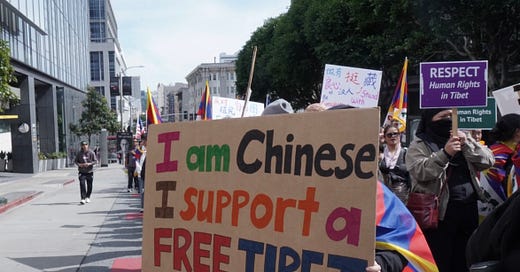


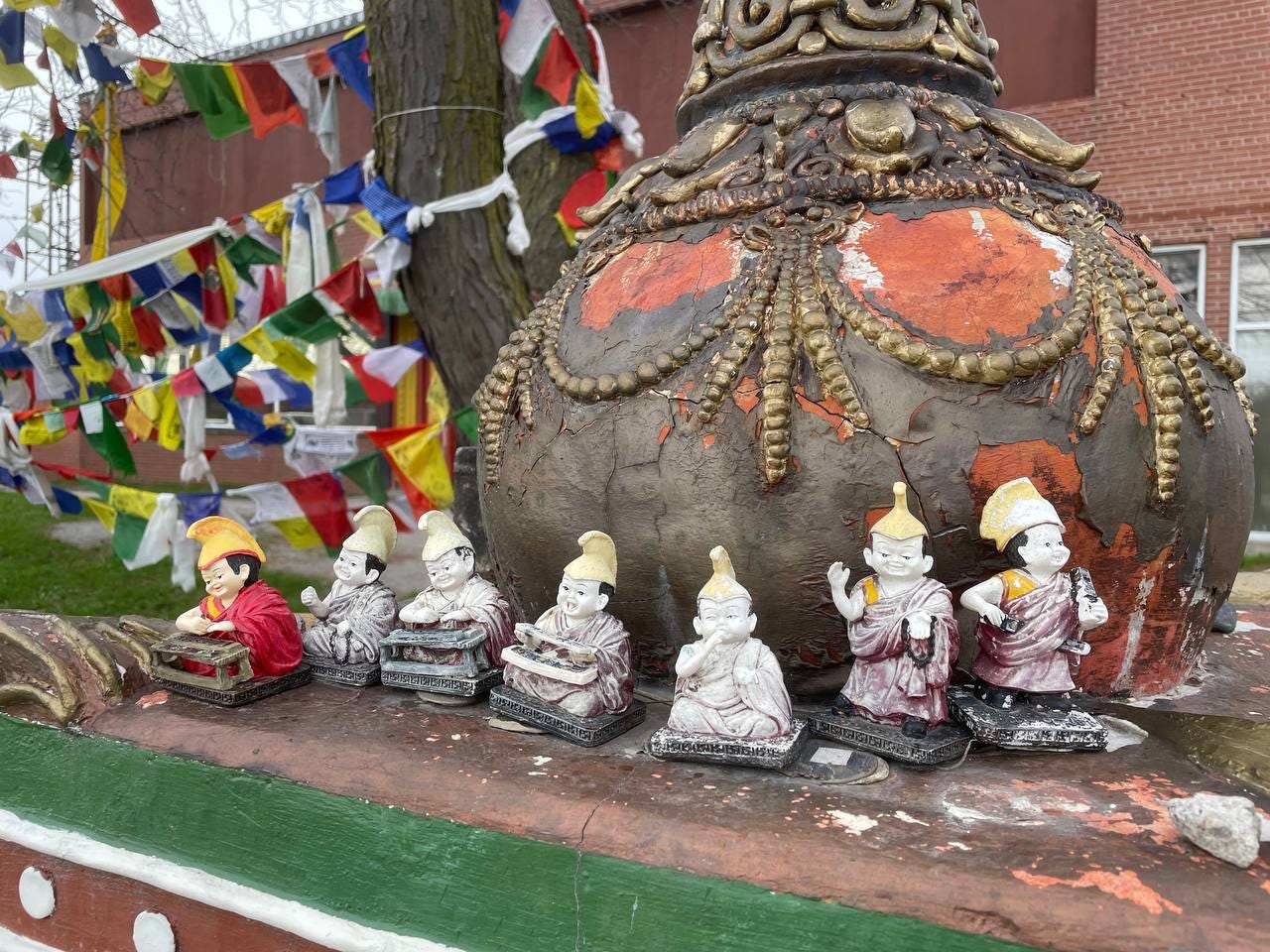

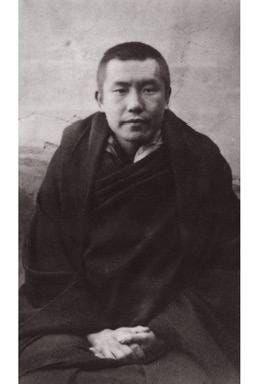
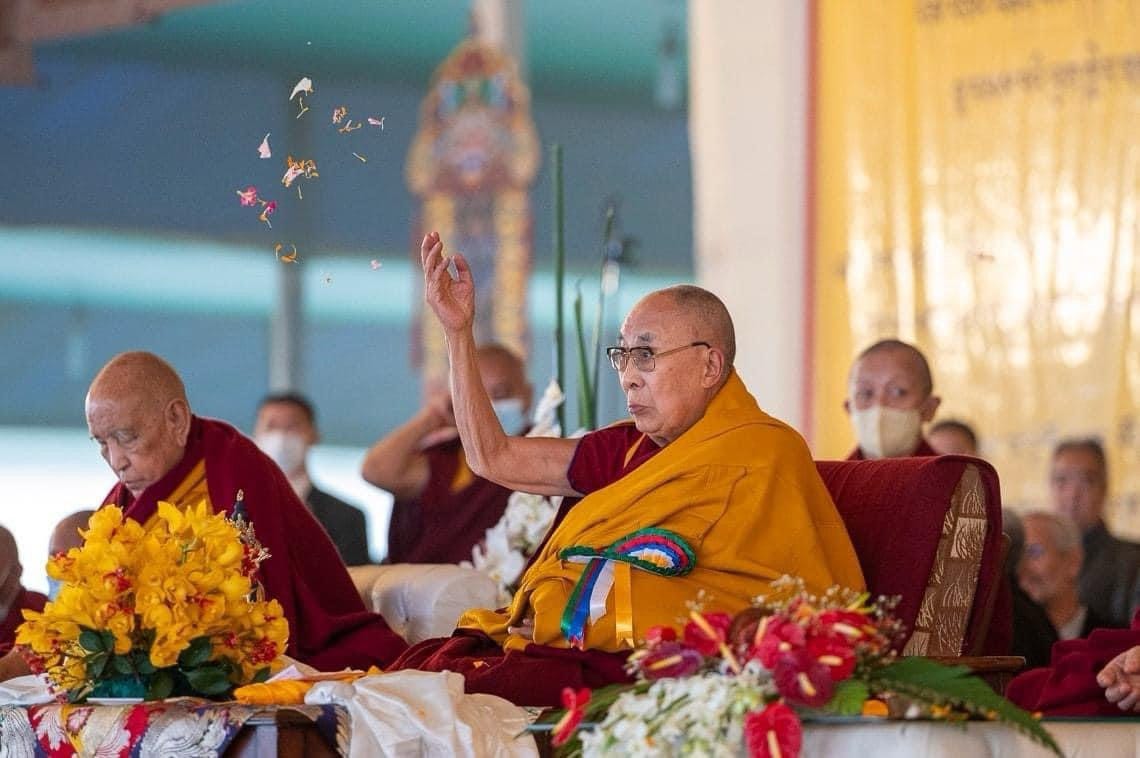
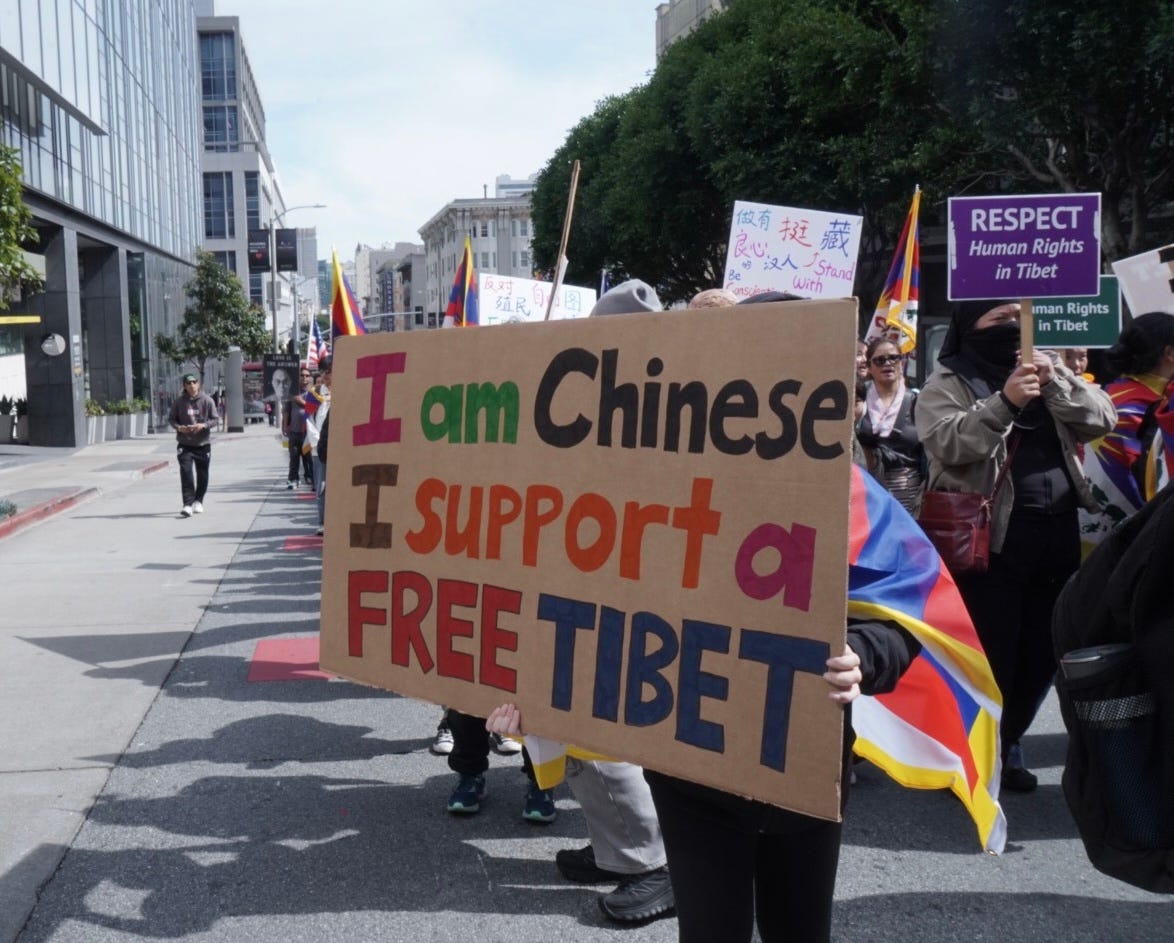
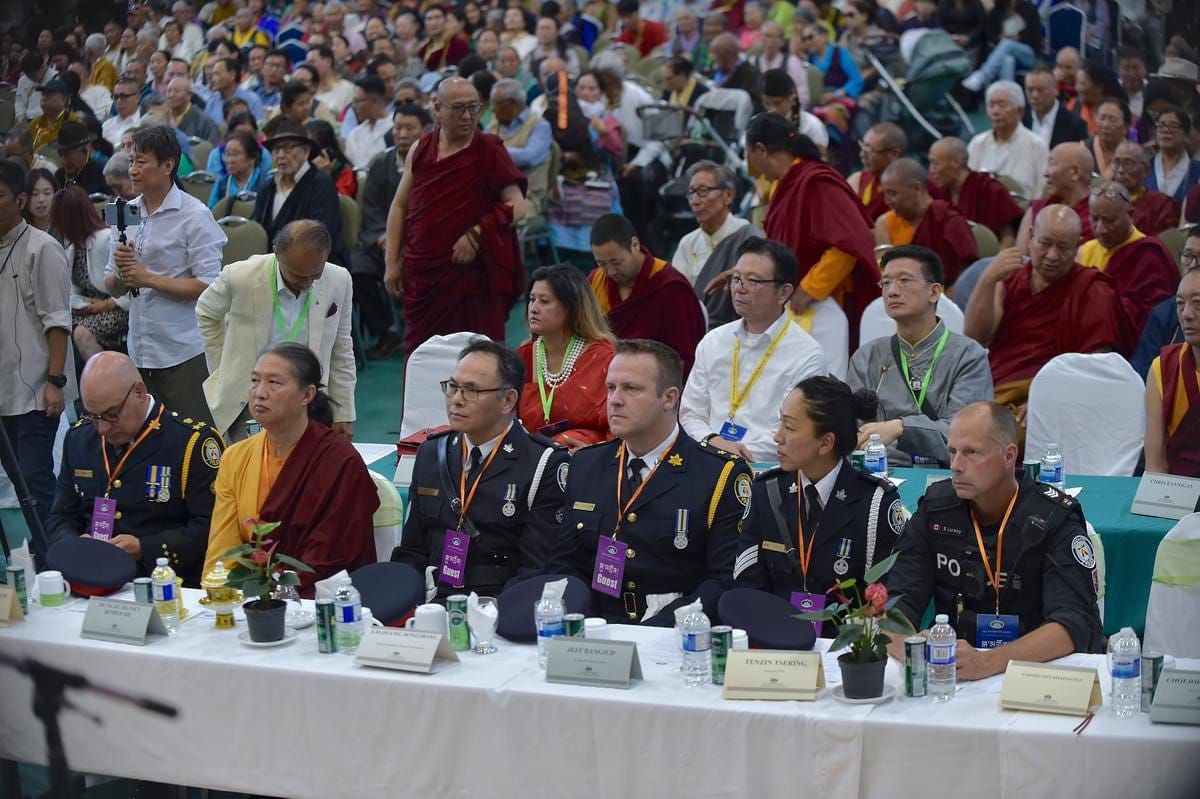
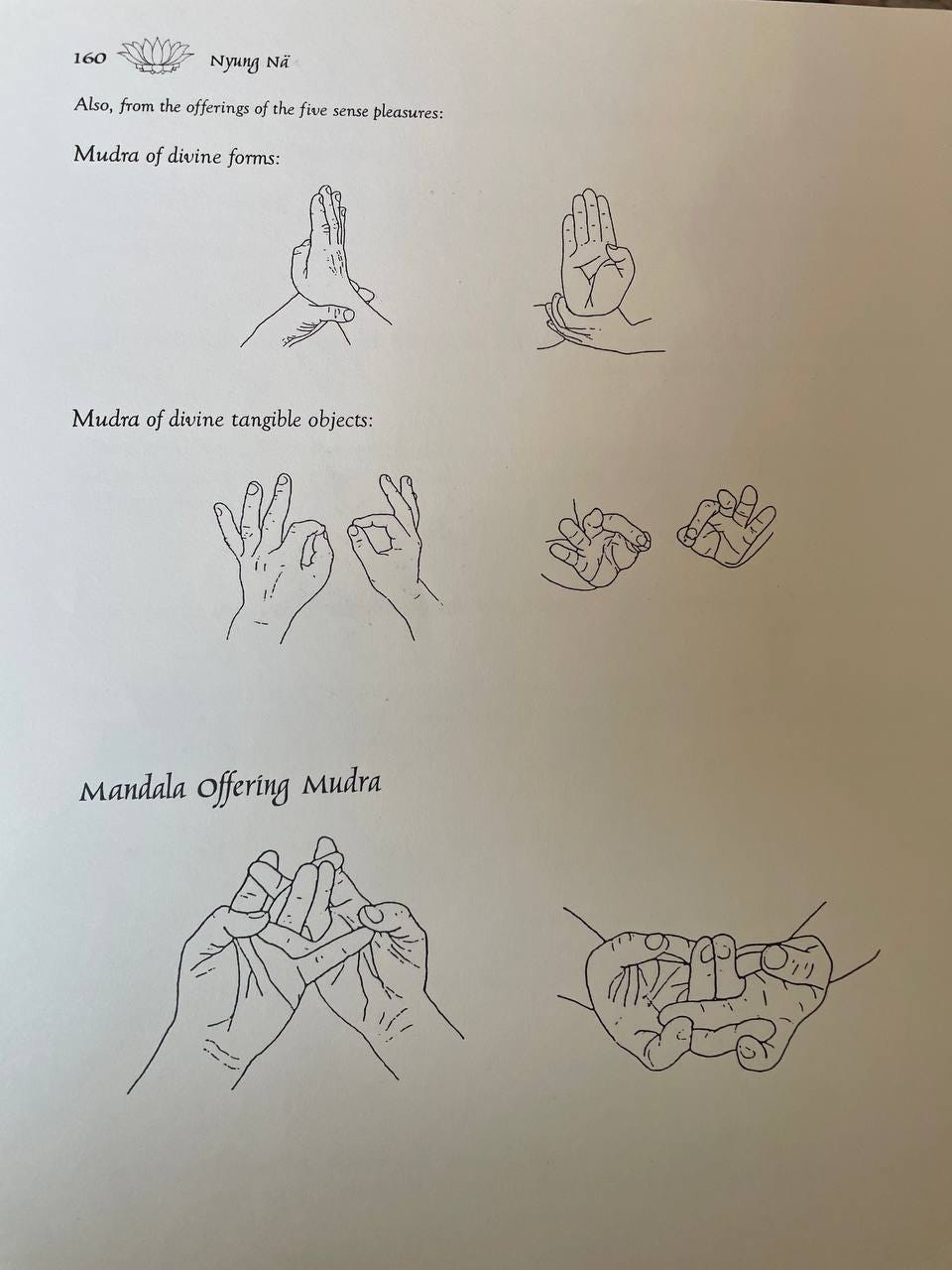
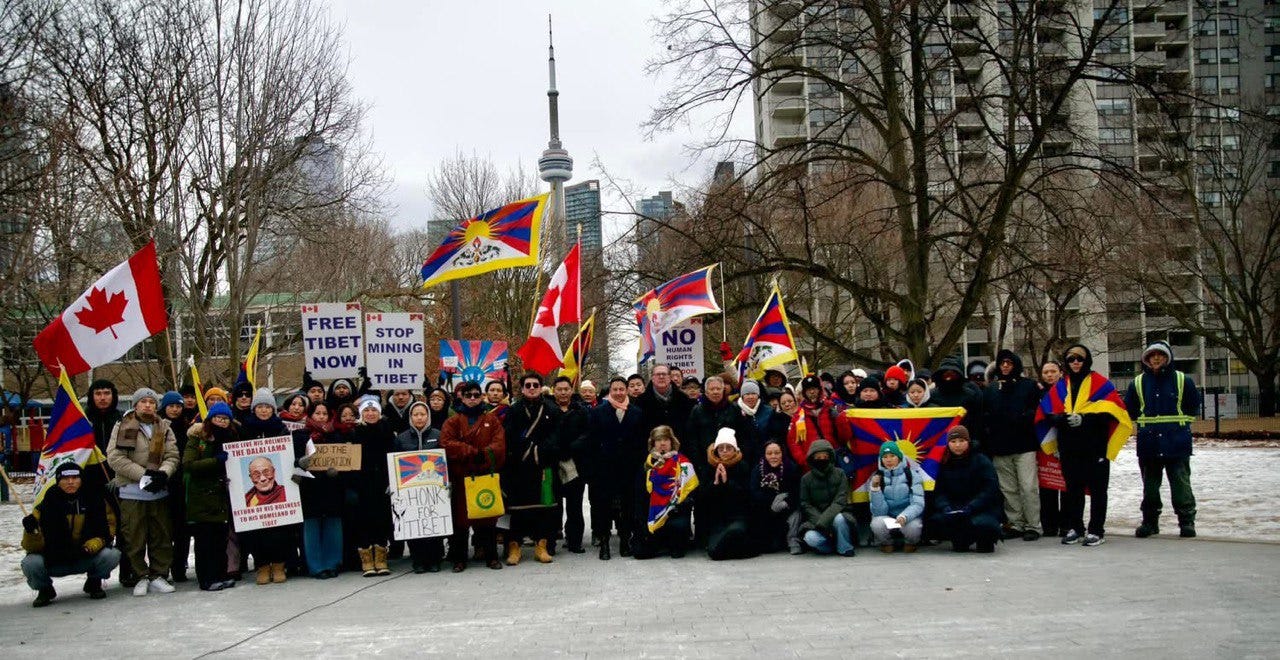


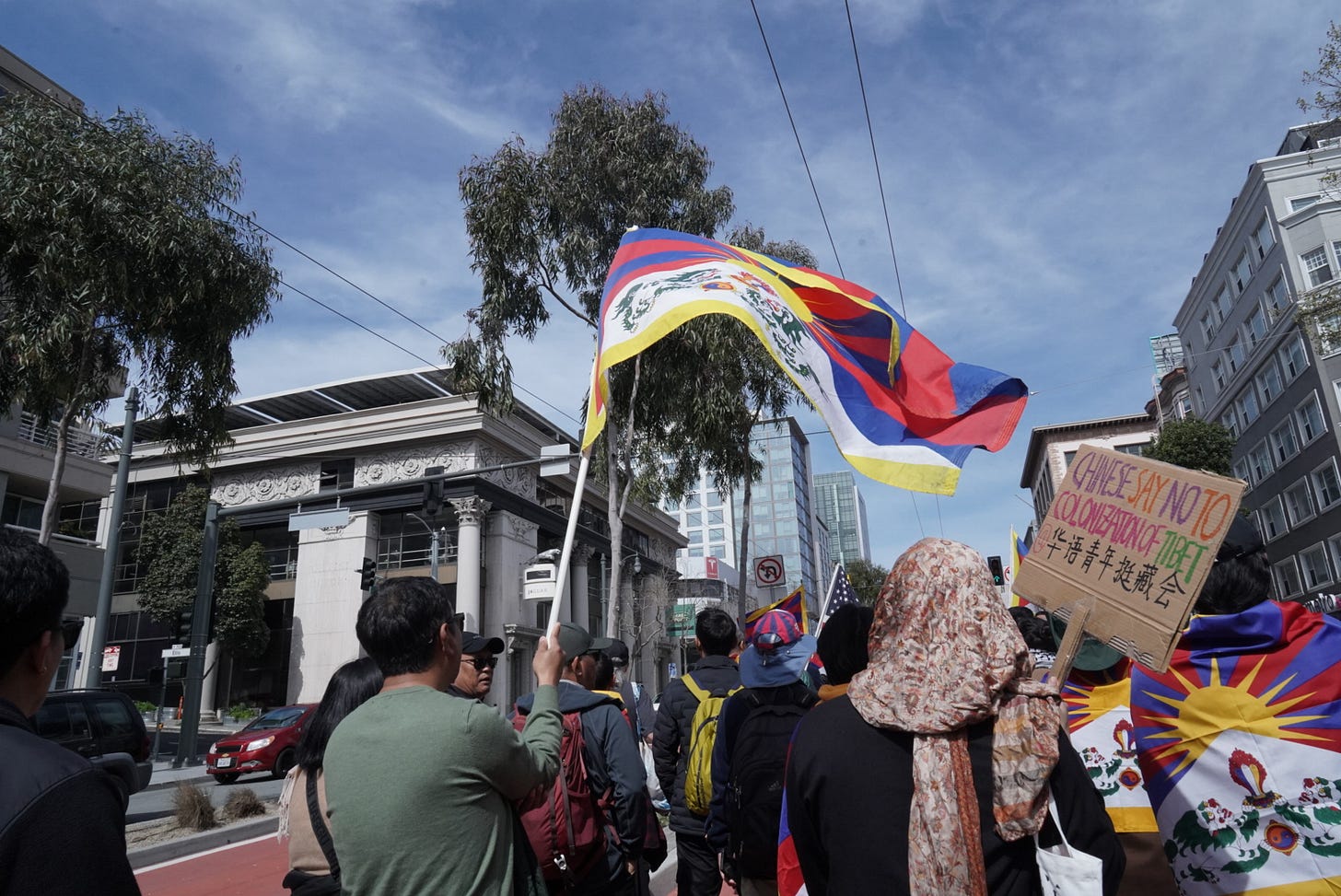
作为一个在西藏生活多年的我,只能说你满嘴胡言?作为一个佛教徒,不知道你是如何理解佛经的?